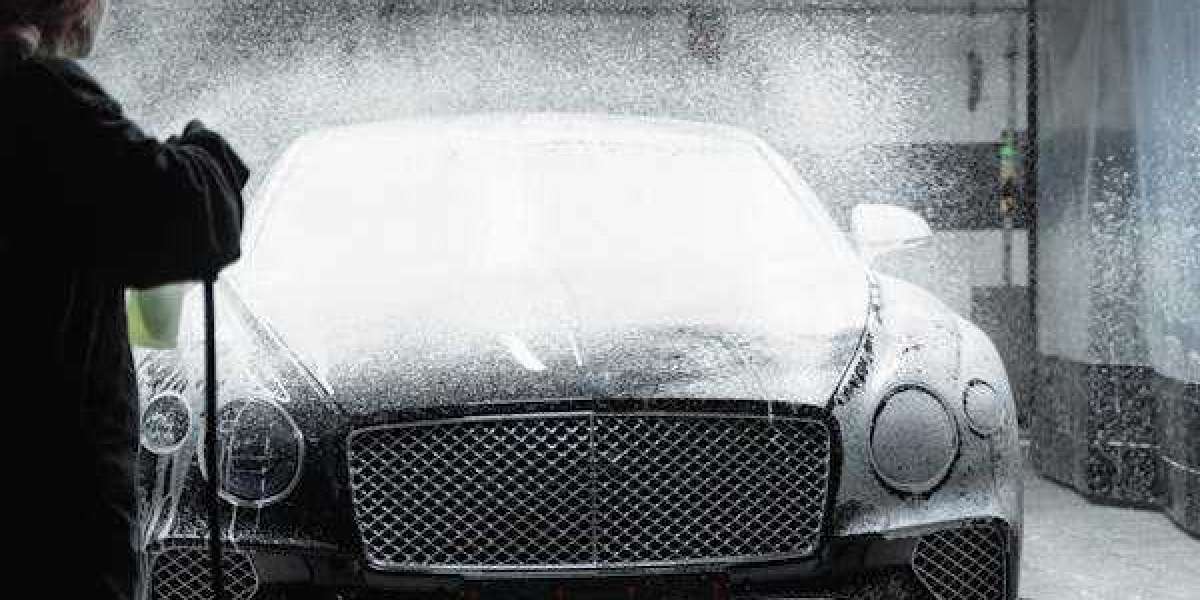Dish Soap vs. Car Soap: Is It Safe to Use on Your Car?
Keeping your car clean is an essential part of vehicle maintenance, ensuring that dirt, grime, and other contaminants don’t cause long-term damage. Many car owners wonder if they can substitute car soap with dish soap to save money or for convenience. While dish soap is a common household cleaner, using it on your car might not be the best idea. So, is dish soap safe for your vehicle, or should you stick with car soap? Let’s dive into the details and find out which one is the better option for your car's health and longevity. This guide by Uni Blogging will help you understand the key differences and make the right choice.
Understanding Dish Soap and Its Ingredients
Dish soap is formulated to cut through grease, break down food particles, and remove tough stains. It contains strong degreasers and surfactants that are excellent at cleaning dishes but may be too harsh for automotive surfaces. The key ingredients found in dish soap include:
- Surfactants: Help break down oils and lift dirt off surfaces.
- Degreasers: Designed to strip away oils and waxes.
- Fragrances and Dyes: Added to improve the smell and appearance but may cause minor reactions on some materials.
These ingredients make dish soap highly effective for dishwashing but not necessarily ideal for car washing.
How Dish Soap Affects Your Car’s Paint
Using dish soap on your car may seem harmless, but it can have negative consequences in the long run. Here’s how:
- Strips Protective Coatings: Dish soap can remove wax and sealants, leaving your car vulnerable to dirt, UV rays, and environmental contaminants.
- Dulls the Paint: Without wax and protective layers, the paint loses its shine and may start to look faded.
- Dries Out Rubber and Plastic Trim: The harsh chemicals in dish soap can dry out rubber seals, plastic trims, and other exterior components, causing them to crack over time.
While dish soap may clean your car, it does so at a cost, affecting the long-term health of the paint and other exterior materials.
Why Car Soap is the Better Choice
Car soap is specifically designed to clean vehicles without stripping away protective coatings or harming the paint. The benefits of using car soap include:
- Gentle on Paint: Formulated with mild surfactants that remove dirt without damaging wax layers.
- Maintains Gloss and Shine: Car soap helps retain the car’s natural shine, making it look newer for longer.
- Safe for All Surfaces: Unlike dish soap, car soap is safe for rubber, plastic, and metal components, preventing drying or damage.
- Balanced pH Levels: Most car soaps are pH-balanced, ensuring they don’t strip away essential oils or protective coatings.
When is Dish Soap Acceptable for Car Cleaning?
Although dish soap is not recommended for regular car washing, there are a few exceptions where it may be useful:
- Prepping for a New Wax Application: If you need to strip off old wax before applying a new layer, dish soap can help remove stubborn residues.
- Emergency Situations: If car soap is unavailable and you need to clean a bird dropping or stain quickly, dish soap can be a temporary solution. Just be sure to rinse thoroughly and reapply wax.
- Cleaning Engine Components: Dish soap can help degrease the engine bay or remove oil stains from certain parts, but it should not be used on painted surfaces.
How to Properly Wash Your Car
To ensure the best results when washing your car, follow these steps:
- Use the Two-Bucket Method: One bucket for clean, soapy water and another for rinsing your wash mitt to prevent scratches.
- Start from the Top Down: Begin washing from the roof and work your way down to avoid dirt buildup.
- Use a Soft Wash Mitt: Avoid using sponges that can trap dirt and create swirl marks.
- Rinse Frequently: Prevent soap residue from drying on the paint by rinsing often.
- Dry with a Microfiber Towel: This helps avoid water spots and ensures a streak-free finish.
- Apply Wax or Sealant: Protect your car’s paint with a high-quality wax or sealant to maintain shine and longevity.
Common Myths About Dish Soap and Car Washing
Many misconceptions surround the use of dish soap for washing cars. Let’s debunk a few:
- Myth #1: Dish Soap is Just as Good as Car Soap – While dish soap removes dirt, it also strips away essential oils and protective layers, making it unsuitable for regular use.
- Myth #2: Dish Soap Can Help Restore Faded Paint – Dish soap won’t fix dull paint; instead, it can make it worse by removing the remaining protection.
- Myth #3: Dish Soap is Safe for Windows and Trim – While it may clean these surfaces, over time, it can dry out rubber seals and plastic components, leading to cracks and discoloration.
Choosing the Right Car Soap
When selecting car soap, consider these factors:
- pH-Balanced Formula: Ensures safe and effective cleaning without stripping wax.
- Foam and Lubrication: A good car soap creates suds that help lift dirt without scratching the paint.
- Wax or Sealant-Friendly: Some car soaps contain added wax to enhance protection.
- Reputable Brand: Choose trusted brands that specialize in automotive care products.
Conclusion
While dish soap may be a great cleaner for dishes, it is not designed for washing cars. The strong degreasers and surfactants in dish soap strip away protective coatings, dull the paint, and can damage rubber and plastic components. Car soap, on the other hand, is specifically formulated to clean vehicles without causing harm. To maintain your car’s shine and protect its paint, always use a high-quality car soap. For those looking to preserve their car’s finish and keep it looking its best, the right cleaning products make all the difference. Uni Blogging.











